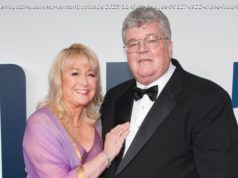‘Nonsense’: Russia dismisses U. K.’s accusation over ex-spy’s poisoning
LONDON — Russian Foreign Minister Sergey Lavrov insisted Tuesday that Moscow “is not to blame” for the nerve-agent poisoning of an ex-Russian spy in Britain.
Lavrov referred to the allegation as “nonsense.”
His comments came ahead of a midnight deadline set by Prime Minister Theresa May for the Kremlin to answer British claims that it was “highly likely” Russia was involved in the poisoning of Sergei Skripal, 66, and his daughter, Yulia, 33. Both remain in a critical condition following the attack in Salisbury, England, on March 4.
May said Britain was ready to take “extensive measures” against Moscow if it does not get a satisfactory explanation for the attack. Otherwise, Britain will consider the incident “an unlawful use of force by the Russian state against the United Kingdom,” she said. However, Lavrov said Russia will only cooperate if it receives samples of the nerve agent believed to have sickened the Skripals.
The chemical is part of a group of military-grade nerve agents developed in the former Soviet Union and known as “Novichok; “newcomer” in English. British investigators have provided few other details about why they suspect Russian involvement.
May is due to speak with President Trump about the poisoning Tuesday amid mixed signals from his administration over who might be responsible. Outgoing Secretary of State Rex Tillerson said the U. S. agreed with Britain’s assessment that Russia was probably behind the poisoning of the double agent. But Tillerson’s remarks, made before he was fired Tuesday by Trump, went much further than a White House statement.
The White House said the case was an outrage and that it stood by Britain, but it did not specifically mention Russia. Trump told reporters before departing for a trip to California that “It sounds to me like they (Britain) believe it was Russia.”
Russian news agencies reported Tuesday that the nation’s foreign ministry has summoned Britain’s ambassador in Moscow over the case, a tit-for-tat move that follows May’s summoning of Russia’s ambassador in London on Monday night.
More: Secretary of State Rex Tillerson ousted in favor of CIA chief, Trump announces
Skripal was jailed in Russia in 2006 after he confessed to being recruited by British intelligence and supplying information about Russian agents. He was freed in 2010 as part of a U. S.-Russian spy swap and moved to Britain.
It is not clear why Skripal was targeted, but the case is reminiscent of the 2006 poisoning death of another former Russian agent. Alexander Litvinenko was exposed to a rare radioactive isotope, polonium-210, at a London hotel. An official British inquiry concluded in 2016 that Russian President Vladimir Putin probably approved the assassination of Litvinenko.
A number of outspoken critics of Putin have been killed or died in mysterious circumstances, including journalists, opposition politicians and exiled tycoons.
Sen. Ben Sasse, R-Neb., a member of the Senate Armed Services Committee, said in a statement that “Putin’s shadow war is real. Sometimes it looks like information operations aimed at undermining confidence in self-government, sometimes it looks like ground operations with masked gunmen and unmarked uniforms in Eastern Europe, and sometimes it looks like an assassination attempt in Great Britain.”
More: Russia faces midnight deadline to explain ex-spy’s poisoning






